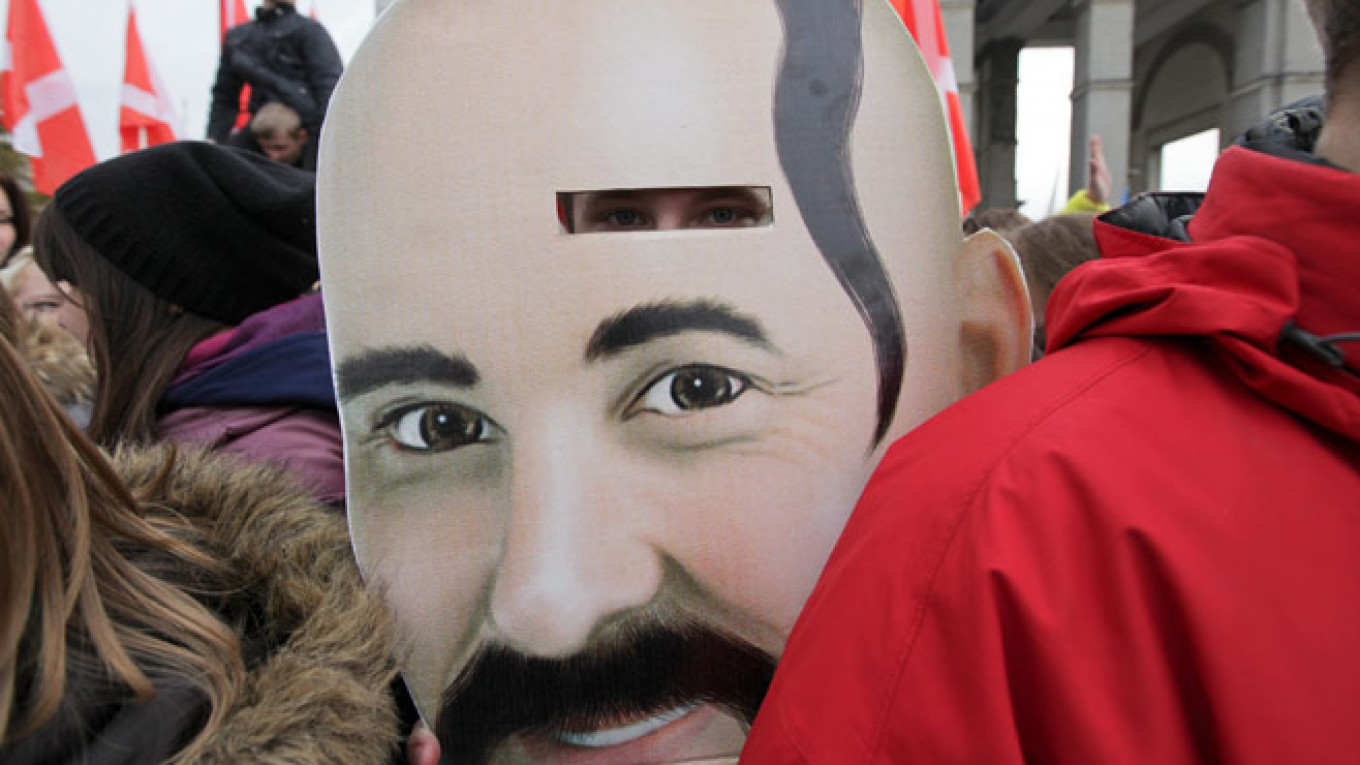Рашка и Хохландия: Russia and Ukraine, derogatory slang
Here at The Moscow Times language desk, I've been trawling the interwebs, looking for new Russian words and phrases. My latest haul comes largely from the comments sections of online media where folks "discuss" the Ukrainian and Russian conflict by flinging insults at each other. I got interested in the insults.
Chauvinistic Russians call Ukraine Хохландия, which comes from хохол, the topknot of hair traditionally worn by Ukrainian men and a slang word for Ukrainians. This is literally the Land of Topknots, which would sound rather lyrical if it wasn't appallingly derogatory. In one "discussion" of who shot down MH17, someone writes: Хохляндия не заграница — она всегда была частью России. (Topknotland is not a foreign country — it was always a part of Russia).
Other insulting names include Укропия (Dill-land), from укропы (Dills). Here is a comment on the Ukrainian orphans taken into Russia: Укропия вопит. Укропы хотят своих сирот обратно. (Dill-land is making a ruckus. The Dills want their orphans back).
Ukrainians are also called the insulting укры and their country — УкРуины (a play on Ukraine and ruins.) УкРуины? Так это не страна, а выдуманная большевиками территория, находящаяся как раковая опухоль, в терминальной стадии разложения (Ukruins? Come on, it's not a country. It's a territory invented by the Bolsheviks that is like a cancer in its terminal stage of decomposition).
Ukrainians might call Russians the derogatory term москали, which originally meant Muscovites, or кацапы, a word with an interesting and somewhat ambiguous history. Many sources say it comes from "как цап" (like a goat) and was used by clean-shaven Ukrainians to refer to the bearded Russians. But other sources assert that it came from the Turkic word кассаб or касап, which originally meant a butcher. It was most famously used by Nikolai Gogol: Проклятые кацапы … едят даже щи с тараканами (Damned northerners … they even eat cabbage soup with cockroaches).
Today Ukrainians might call the invading Russians колорады (Colorados). This is a reference to the striped St. George ribbons that Russian patriots wear, which are reminiscent of the destructive striped Colorado beetles. Очень жаль, что образ Матери Божьей осквернён руками колорадов. (It's such a shame that the image of the Mother of God was defiled by the hands of Colorados).
The military men with no identifying insignias who appeared in Crimea and elsewhere are called зелёные человечки (little green men) by Ukrainians and вежливые люди (polite people) by many Russians. This term comes from their description by the Russian leadership, for example President Vladimir Putin's spokesperson Dmitry Peskov: … безопасность референдума обеспечивали специальные люди. Вежливые люди. ( …the referendum was secured by special people. Polite people).
Ukrainians also sneeringly call Russians ватники (literally "quilted jackets"), but this term was coined in Russia. Ватники are dim-witted, hard-drinking, unquestioning patriots, unshaven and stereotypically heavy-set — квадратные (square) — men. They are blindly obedient citizens of Рашка (Rusha), a term used to disparage the country's current regime and population. In this world, people who hate Russia are рашкафобы (Rusha-phobes) and people who love the country are рашкафилы (Rusha-philes). Ватники call Russia Россиюшка (something like "sweet Russia").
My recommendation? Call them Россия and Украина.
Michele A. Berdy, a Moscow-based translator and interpreter, is author of "The Russian Word's Worth" (Glas), a collection of her columns.
A Message from The Moscow Times:
Dear readers,
We are facing unprecedented challenges. Russia's Prosecutor General's Office has designated The Moscow Times as an "undesirable" organization, criminalizing our work and putting our staff at risk of prosecution. This follows our earlier unjust labeling as a "foreign agent."
These actions are direct attempts to silence independent journalism in Russia. The authorities claim our work "discredits the decisions of the Russian leadership." We see things differently: we strive to provide accurate, unbiased reporting on Russia.
We, the journalists of The Moscow Times, refuse to be silenced. But to continue our work, we need your help.
Your support, no matter how small, makes a world of difference. If you can, please support us monthly starting from just $2. It's quick to set up, and every contribution makes a significant impact.
By supporting The Moscow Times, you're defending open, independent journalism in the face of repression. Thank you for standing with us.
Remind me later.








